Discover the Power of Deep Attention: Seven Reasons to Join the Azores Writing Retreat with Scott Edward Anderson
July 7, 2023

Are you a writer seeking to delve into the depths of your creative well? Are you a would-be writer who has always wanted to write, but could never find the time or discipline? Do you long to cultivate a focused, immersive writing practice that transcends distractions and unlocks your true potential?
If so, we invite you to embark on a life-changing journey to the breathtaking Azores archipelago for a Deep Attention Writing Retreat with the esteemed author Scott Edward Anderson. From 13-18 October 2023, get ready to immerse yourself in an oasis of inspiration, surrounded by stunning natural beauty and the nurturing guidance of an expert wordsmith.
Here are seven reasons why attending this retreat could be the turning point in your writing journey:
1. Unleash Your Creative Potential: Scott Edward Anderson, an award-winning poet, memoirist, and essayist, is renowned for his ability to coax out the hidden depths of creativity within writers and would-be writers alike. Through his extensive experience and compassionate mentorship, he will help you tap into your unique voice and express your ideas with profound clarity and emotional resonance.
2. Deep Attention Practice: In an age of constant distractions, cultivating deep attention has become a superpower. This retreat is designed to help you reclaim your focus and immerse yourself in the present moment, where creativity flourishes. Through mindfulness exercises and specially curated nature-based interactive sessions, you will learn how to quiet the noise of the world and give undivided attention to your craft.
3. Inspiring Natural Surroundings: Nestled in the stunning Azores archipelago, this retreat on São Miguel Island offers an idyllic setting for creative exploration. Picture yourself surrounded by lush green landscapes, breathtaking ocean views, and the soothing sounds of nature. The serene ambiance of the Azores will inspire and invigorate your writing, providing the perfect backdrop for introspection and inspiration.
4. Intimate and Supportive Community: Connecting with fellow travelers who share your passion can be a transformative experience. The retreat fosters a warm and nurturing community, allowing you to engage in meaningful discussions, exchange ideas, and form lasting connections. The power of collective creativity and support will propel you forward on your writing journey long after the retreat ends.
5. Expert Guidance and Mentorship: Scott Edward Anderson’s wealth of knowledge and expertise will guide you through the intricacies of his Deep Attention writing practice. He will share invaluable insights into the craft and practice of writing and evoking deep emotions through language. His mentorship will help you grow as a writer and expand your creative boundaries, as it has for others like M. Chun, who says that Anderson “continuously expressed an encouraging and supportive approach toward my creative work, and I easily felt comfortable and confident sharing my ideas with him…[he] kindled my brainstorming process by recommending similar pieces and writers, and he also helped me pinpoint themes…from my initially unstructured ideas.”.
6. Reflection and Self-Discovery: Writing is not just about words on a page; it is a profound act of self-discovery. During the retreat, you will have ample time for introspection, allowing you to explore your inner landscape, uncover new perspectives, and deepen your understanding of yourself and your craft. This transformative journey will leave you with a newfound sense of purpose and direction in your writing.
7. Cultural Immersion: The Azores, with its rich cultural heritage and vibrant traditions, offers a unique opportunity for cultural immersion. From exploring local cuisine to engaging with the island’s history and culture, you’ll gain fresh insights that can enrich your writing. The vibrant tapestry of Azorean life will infuse your work with a sense of place and authenticity.
Spaces for this exclusive retreat are limited, so seize the opportunity to embark on a transformative journey of creative exploration. Escape the distractions of daily life, immerse yourself in the Azores’ natural beauty, and let Scott Edward Anderson’s guidance and mentorship unlock the full potential of your writing. Join us on this profound adventure and discover the transformative power of Deep Attention. Register today: Azores Deep Attention Writing Retreat
Why a Writing Retreat in the Azores?
May 25, 2023
People ask me why a Writing Retreat in the Azores? My first answer to that question is: because I want to share my ancestral island and its natural and cultural gifts with you. My second answer is: what better place to practice deep attention to our writing than on a remote island in the middle of the Atlantic?
Writing without distraction is particularly difficult these days, that’s why I’ve designed the Azores Writing Retreat around what I’m calling Deep Attention. Everything we do will be guided by this framework, designed to develop a practice we can take with us long after the retreat is over.
Deep Attention is a practice I’m developing in response to our age of distraction. Paying attention in an age of distraction is hard. At any given moment, there is a myriad of distractions tempting us away from our writing.
If we’re paying attention, however, we can put our busy lives in perspective, create a context for what we’re doing on this planet. Living like this, life is not about going through the motions; rather, we actively participate in life, in all its facets.
Deep Attention sets us up for opening the writing brain, for preparing that muscle to do its best work. Working the writing-brain in this way makes it easier to pay attention, not only to our surroundings, but to our words and what the piece of writing is trying to say. It’s also a reciprocal, regenerative act: paying deep attention informs our writing and our writing helps us pay deeper attention.
For me, the practice of Deep Attention is part of the act of writing, as the practice of writing is part of the act of paying attention, a cyclical, symbiotic relationship. This type of attentiveness is akin to what Zen practitioners call deep listening.
As Zen practice implies, deep listening requires complete receptivity—an openness and attentiveness to what’s possible and to asking questions. If we have a question to answer through our writing, we need to ask it. Nevertheless, it sometimes seems like our minds are on autopilot and we are not truly paying attention, causing us to miss both questions and answers.
This deep listening and attentiveness are a form of tuning to the right frequency. Like the dial on an old car radio, if you turn a little too much to the right or left, you lose the signal. Through the act of paying attention, we fine-tune our ability to land on the right frequency.
Deep Attention requires a two-fold approach to paying attention: outward and inward. Outward: what’s going on around you and what you see, what you notice. Inward: what’s going on within you and your reactions to what you notice. Combined, this inward and outward focus develops our ability to see things others do not see and allows us to call attention to those things in our writing. Inward-focused attention also helps us turn observation into a piece of writing, aligning the frequencies and images to unlock the stories within us.
Deep Attention is, in part, a form of showing up, of being fully present, fully engaged. Distractions govern so much of our lives—from social media to work life—we so rarely allow time for deep attentiveness. If we make it a practice, however, we can begin to form insights and become more receptive to the poetry of our everyday lives and bring it into our writing.
Join me on the island of São Miguel for this five-day Deep Attention Retreat, October 13-18, 2023, where we’ll learn the practice Deep Attention, immerse ourselves in the incredible nature of the “Hawaii of Europe,” savor the delectable cuisine of the Azores, and get a lot of writing done.
Reserve your spot today: Azores Writing Retreat.
If you’ve ever dreamed of exploring the art of writing on an enchanted island, this is your opportunity! Join me for this unique writing retreat in the Azores, Portugal — the “Hawaii of Europe.”
We’ll spend five days on magical São Miguel, one of the nine islands of the Azorean archipelago, “an otherworldly paradise for nature lovers and outdoor adventurers,” as described by Travel & Leisure. We’ll Immerse ourselves in the luxury of one of the island’s most elegant hotels, situated on an 18th century orchard estate, famous among islanders for blending tradition and nature. We’ll savor the cuisine of the island, which fuses farm-to-table and ocean-caught freshness with gourmet takes on traditional Portuguese recipes. And we’ll explore some of the natural wonders of the island, including the hot springs of Furnas, the beauty of the twin volcano lakes at Sete Cidades, and forest bathing in Pinhal da Paz (the pine grove of peace).
During this retreat, you’ll have ample time to write. After a delicious Azorean breakfast, I’ll lead a guided, intention-setting session before you set out to write on your own in the seclusion of the gardens or wherever you choose on the hotel grounds.
I’ll share my mindful approach to writing, what I call “Deep Attention,” a creative practice of looking at the world with intention and without distraction, which I first outlined in this essay. The retreat will incorporate this deep attention practice to help you tap into your creativity, gain new perspectives, and get beyond your daily, habitual obsessions and distractions.
Lunch will be served at the hotel or on guided field trips. After the afternoon field trip, you’ll have an opportunity for another writing session or free time to relax, use the spa, pool, or soak in the heated plunge pool in the pineapple greenhouse. After dinner, you’ll have an opportunity to share your work or reflect upon your experiences.
I’ve designed this retreat to show you some of the best my ancestral island has to offer, and I’ve hand-picked the hotel, restaurants, excursions, and experiences to ensure you will be inspired to write in a relaxed, mindful, and encouraging environment.
Early Bird Discount ends on June 15th, so sign up today!
Find out more: https://www.scottedwardanderson.com/azores-retreat
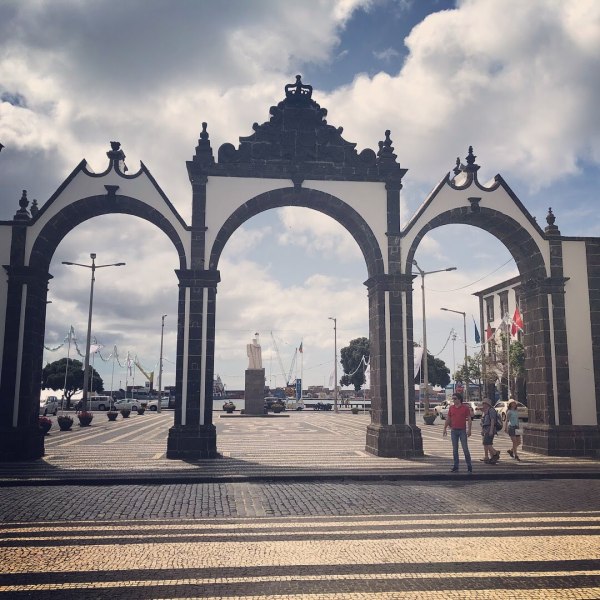
The iconic 18th Century Portas da Cidade (City Gates) in Ponta Delgada, São Miguel. (Photo by Scott Edward Anderson)
Some of you know that I’ve been on a journey the past few years to uncover and explore my familial roots on the island of São Miguel in the Azores, the nine-island archipelago in the Atlantic Ocean between Portugal and the United States.
Last summer, I had a residency on the island with Disquiet International, named for the enigmatic book of prose written by the great Portuguese poet, Fernando Pessoa. The residency in Ponta Delgada took place only 3.7 km from the freguesia (municipal parish) where two of my maternal great-grandparents emigrated in 1906.
Through Disquiet, I was also introduced to poet Lara Gularte, herself of Azorean American ancestry. Her relatives were from Faial, Pico, and Flores, three more of the nine islands in the Azores. Gularte was born in California and grew up in what was then an area of fruit farms known as the Santa Clara Valley (now more famously known as Silicon Valley).
Last month, Lara graciously invited me to read in the series she runs in the Sierra Foothills east of Sacramento, near where she now lives. Along with her husband, Brian—and some good local wine—we spent a wonderful evening discussing our Azorean heritage, poetry, and the dilemma of being generations removed from the places of our origins.
Gularte, who worked for many years as a public servant, finally traveled back to the Azores in 2008—the first of her family to return in four generations. “Before I explored these islands, they were only an abstraction,” Lara told the Portuguese American Journal in June 2018. “I had seen photos and post cards, but nothing prepared me for the natural beauty and complexity of the landscape.”
Her first collection, Kissing the Bee, was published by The Bitter Oleander Press in 2018. Many of the poems in her book speak to what she found on the Azores and the deepening connection which that brought about with her family roots in California’s fertile central valley.
“I was a resident poet at Footpaths to Creativity Center and Artist/Writer Residency on Flores Island in the Azores where this poem was written,” Lara says. “Flores is the island from where my grandfather was born before he emigrated as a young boy to the U.S. He was a stowaway on a ship and disembarked in New Bedford, Mass. He then worked in the cranberry bogs for a few years before traveling to California where he met my grandmother.”
Here is Lara Gularte’s poem, “Flores Island”:
FLORES ISLAND
The place at the beginning
A whale rises up in her mind
turning her thoughts gray.
In port, the ferry of return.
She searches for her grandfather
to discover the shape of his emigration
and finds the plank’s gone, rotted.
At the mercy of rough water and high winds,
he rowed, sinews pulling his dory,
pulling his bones to breaking.
She scans the distance,
says his name out loud, Antonio Henriques,
waits to hear a voice, see a face.
She searches for all the prisoners
of thick mists, others who look like her,
whose foreign tongues speak music to her soul.
Beyond the wake of a rogue wave,
currents and tides ride
on the back of a gray whale.
She sees through the vapor
boats whose nets gather the sky and let go.
Fog falls,
bearing dazed souls back to their home place.
She falls with them.
—Lara Gularte, from Kissing the Bee (The Bitter Oleander Press, 2018). Used by permission of the author.
As some of you know, my new role in my day job at EY involves helping globalize prepaid smart metering programs for municipal utilities in emerging markets.
It’s a project that started in South Africa, and I think it’s pretty cool to be exporting an innovation from the African continent rather than imposing it from outside.
Traveling to South Africa, I’ve begun to explore the literature and art of the country over the last 20 years since the end of apartheid.
Thinking about poets whose work I could share, I thought about the work of Isobel Dixon. I know Isobel chiefly through social media — I believe it was Jo Bell or the Scottish Poetry Library who first introduced me to her work.
Dixon lives in London, but was born in Umtata, South Africa, and grew up in the semi-desert region known as the Karoo. She studied in the South African winelands country of Stellenbosch (where I was with my wife Samantha in January) and in Edinburgh.
In 2000, Dixon won the Sanlam Literary Award for her then unpublished collection of poetry Weather Eye, which was subsequently published by Carapace Poets (2001). She is also the author two collections, The Tempest Prognosticator and A Fold in the Map, both published by Salt in the UK. You can read more of her work at isobeldixon.com
I love the rhythms and musicality of Isobel Dixon’s poem, “She Comes Swimming,” and the mix of history and mythology that unfolds as we read. Of the poem Dixon wrote in an email to me,
“This is a poem very close to my heart, about my beloved country, South Africa. I wrote it in my first years abroad, feeling very keenly what it means to live far from the motherland, to yearn for it – and yet to fear that time away will change you, or change others’ perceptions of you, so that you might be perceived as an outsider, in spite of all you feel and are.”
Dixon “won a scholarship to do postgraduate study in my father’s native Scotland, the realisation of a dream, but at a time when I’d rather have stayed in South Africa – the momentous year of the first democratic elections.”
Another aspect of the poem that I particularly admire is what Dixon explains as “This sense of rueful distance, of vivid longing, and an awareness of the complex histories and hybrid mythologies of my faraway homeland, all fed into a poem about my imagined journey southwards, swimming back in time and language too.”
Dixon also told me that the poem has a central place in her Salt collection, A Fold in the Map, a collection that looks at the traveler’s state of “in-betweenness,” caught between lives and countries.
“The poem flowed onto the page in something of a hypnotic state,” Dixon wrote. “One of those poems you look at the day after and think, ‘Where did that come from, and how?’ Wherever it summoned itself from, I’m glad it did.” We are too.
Here is Isobel Dixon’s poem, SHE COMES SWIMMING
She comes swimming to you, following
da Gama’s wake. The twisting Nile
won’t take her halfway far enough.
No, don’t imagine sirens – mermaid
beauty is too delicate and quick.
Nor does she have that radiance,
Botticelli’s Venus glow. No golden
goddess, she’s a southern
selkie-sister, dusky otter-girl
who breasts the cold Benguela, rides
the rough Atlantic swell, its chilly
tides, for leagues and leagues.
Her pelt is salty, soaked. Worn out,
she floats, a dark Ophelia, thinking
what it feels like just to sink
caressed by seaweed, nibbled by
a school of jewel-plated fish.
But with her chin tipped skyward
she can’t miss the Southern Cross
which now looks newly down on her,
a buttress for the roof of her familiar
hemisphere. She’s nearly there.
With wrinkled fingertips, she strokes
her rosary of ivory, bone and horn
and some black seed or stone
she can’t recall the name of,
only knows its rubbed-down feel.
And then she thanks her stars,
the ones she’s always known,
and flips herself, to find her rhythm
and her course again. On, southwards,
yes, much further south than this.
This time she’ll pay attention
to the names – not just the English,
Portuguese and Dutch, the splicings
and accretions of the years. She’ll search
for first names in that Urworld, find
her heart-land’s mother tongue.
Perhaps there’s no such language,
only touch – but that’s at least a dialect
still spoken there. She knows when she
arrives she’ll have to learn again,
so much forgotten, lost. And when
they put her to the test she fears
she’ll be found wanting, out of step.
But now what she must do is swim,
stay focused on each stroke,
until she feels the landshelf
far beneath her rise, a gentle slope
up to the rock, the Cape,
the Fairest Cape. Her Mother City
and its mountain, waiting, wrapped
in veils of cloud and smoke.
Then she must concentrate, dodge
nets and wrack, a plastic bag afloat –
a flaccid, shrunk albino ray –
until she’s close enough to touch
down on the seabed, stumble
to the beach – the glistening sand
as great a treasure as her Milky Way –
fall on her knees and plant a kiss
and her old string of beads,
her own explorer’s cross
into the cruel, fruitful earth at last.
She’s at your feet. Her heart
is beating fast. Her limbs are weak.
Make her look up. Tell her she’s home.
Don’t send her on her way again.
© 2001, Isobel Dixon
Used by permission of the author.
Last month, Samantha and I went to Israel. It was my first time in the country and my first visit to the Holy Land.
I was struck by the conundrum that is Israel. On the one hand, there is the history of the land and the history on the land.
Three of the world’s major religions were built from the earth there and sprouted and diverged as any people do, resulting in conflict and misunderstanding.
On the other hand, there is evidence of these religious factions co-existing much like that bumper sticker popular a few years ago featuring the message “Co-Exist” and a pantheon of religious symbols, as if to ask, can’t we all just “get along”?
In Old Jaffa, south of Tel Aviv, for instance, ancient mosques and churches and synagogues sit cheek by jowl along the sea approach. And the market in Jerusalem is filled with Muslim and Jewish merchants distinguished perhaps only by their working hours and some specific merchandise.
Concurrent with this trip, Samantha asked me to write a poem to serve as the peace prayer at her daughter, Erica’s Bat Mitzvah, which happens to be this weekend. I was honored that not only Samantha, but my stepdaughter, too, wanted me to participate in her special day.
I’d been thinking about the subject on my first days in Israel, much of which was spent on my own as Samantha was in a conference.
But it wasn’t until our last day, in Jerusalem, when a tour guide we’d hired read a poem of Yehuda Amichai’s called “An Arab Shepherd is Searching for His Goat on Mt. Zion,” as we stood on a hill under the Moses Montefiore windmill overlooking Mt. Zion, that a poem started to come to me.
(Amichai is significant, too, because I gave Erica’s brother Max a book of Amichai’s poetry for his Bar Mitzvah a few years ago.)
Here is my poem “Peace On Mt. Zion,” which I dedicate to Erica and will read at her ceremony:
PEACE ON MT. ZION
(for Erica, on her Bat Mitzvah)
Peace is such an abstract word,
made concrete by the story
of an Arab shepherd and a Jewish father
told by a guide overlooking
Sultan’s Pool, outside the old city
of Jerusalem, from Amichai’s poem
about searching for a goat
and a child on Mt. Zion.
Their “temporary failure”
strikes me first, a lasting impression
lingering over the ramparts of the old city
–cradle and shelter of all origins.
So much begins searching
for a goat and a child on a mountain—
new religions, sacrifices, whole
cloths to cover the void,
until the child is found and the goat,
hiding together among the bushes.
The father and the shepherd
cry together and laugh,
and for a moment, all is quiet,
except for their voices,
which you can still hear
echoing over centuries of stone.
–Scott Edward Anderson
Two Poems of the Beach
August 1, 2010
I’ve been on vacation this past week on the North Carolina Coast.
Oak Island is one of the south-facing islands that are not part of the more famous Outer Banks and neither as far south nor as celebrated as Myrtle Beach.
We like it there because it is quiet and sleepy in an old-fashioned way. It is a far drive from Philadelphia, but these days you need to go pretty far to get far away.
Being on the beach reminded me of two poems I wrote about other Atlantic Coastal vacations, back in the early 90s.
The first, “Gleanings,” was written in Ocean Grove, New Jersey, and appeared in an anthology called “Under a Gull’s Wing: Poems and Photographs of the Jersey Shore.” It was written for two old friends, Jim Supplee and Diane Stiglich:
“Gleanings”
Look at the two of them, bent
to the early morning tide.
They cull glass from the sandy surf.
Strange and wonderful alchemists,
who search for the elusive blue
of medicine bottles, caressing
emerald imitators from “Old Latrobe,”
or amber sea urchins
left there like whelks at low tide.
They discard broken bits of crockery,
forsaken like jetsam of the sands.
Beach glass is opaque
with a false clarity:
Polished by sand and sea,
the edges don’t cut
like our lives, lived elsewhere,
out beyond the last sandbar,
where plate tectonics rule the waves.
The second poem was written down the coast a bit in Chincoteague, Virginia. Chincoteague is famous for its wild horses and for its mosquitoes. But I chose a couple of other focal points in my poem “Spartina,” which later appeared in the magazine Philadelphia Stories:
“Spartina”
Herring gull dragged from the cordgrass by a bay cat,
who drops the sputtering gull under a tree.
The gull’s left wing and leg are broken — right wing thrashing,
body turning round a point, compass tracing a circle.
Wild chorus of gulls tracing the same circle in salt haze
only wider, concentric, thirty feet overhead.
The cat lying down in shade, making furtive stabs,
powerful paws slapping down motion.
The cat’s feral, calico-covered muscles ebb and shudder
in the bay breeze. She is Spartina, waving in wind or water.
Now she yawns indelicately, fur and feathers
lofting on the incoming tide.
The gull plants his beak in the sand,
tethered, like all of us, to fate.
–Scott Edward Anderson
##
I hope your vacation plans take you to a coast somewhere. “The sea is a cleanser,” as a good friend wrote to me recently.
Let’s hope that’s true, for the sake of the Gulf Coast.
A poem for Indonesia and victims of terror everywhere
July 18, 2009
I’ve had a love affair with Indonesia for a long time now. Curiously, it started with its poetry long before I ever visited the country. But the people and the place are the real magic for me. Indonesia is a land (and waters) of stunning beauty, a people of peace and wonder, and a remarkable, storied culture.
I long to go back and when something like the bombings in Jakarta this week happens, my heart sinks that Indonesia and its people may suffer.
A few years ago, after the Bali bombings that killed 20 people and injured 129 and reports of other terrorist activities surfaced, I wrote a poem called “Sons of Abraham,” which has not yet been published. It may be too difficult a subject to be published. (Of course, it also may be that it is not yet finished or polished enough for publication!)
I want to share it here in the wake of the Jakarta bombings and in honor and memory of all victims of terrorism everywhere:
SONS OF ABRAHAM
We are all strung together
by thin filaments of air,
fragments of faith and our burning desire
to please God, to engender
a kind of blessing. Time
is the fragrance of one age
evoking another; essence
is our connection on earth.
I harbor neither empathy nor anger
for people who set off bombs in Bali,
only pity. I am sorry for them,
honoring their God in this way:
beheading Christian village leaders,
decapitating young girls
on their way to school or attacking
women because they wear a burqa
or pray to Mecca.
How sad to think God can be appeased
by such actions, that He wants
such a fate for you—
As for God, I forgive His negligence
or lack of supervision, all leaders are flawed.
We are all Sons of Abraham,
that model of faith, and we are all
struck down by hearts of stone,
leaden particles of dust
shattering between us
in the opaque calculation
of suicide bombs—
“Forgive them, Father,
for they know not what they’ve done.”
–Scott Edward Anderson
______________________________________________
(Note: There are families in eastern Indonesia who have married two faiths, Christian and Muslim. The first-born son or daughter is baptized; the next is raised in Islam. We are all connected. I love my Muslim brothers and sisters as well as my Christian, my Jewish, my Buddhist, and my Hindu families. There is only one God.)
When a poet goes missing does anyone hear? Yes.
May 11, 2009
This weekend, the Los Angeles Times reported that award-winning poet Craig Arnold, who went missing in Japan in late April, is presumed to have died after a fall.
The American search team, established by his employer, the University of Wyoming after the official Japanese search was ended, tracked Arnold to the edge of “a high and dangerous cliff, and there is virtually no possibility he could have survived the fall,” according to a release quote in the Times.
According to the report, Arnold was fascinated with volcanoes and had traveled to Kuchinoerabu-jima, a tiny Japanese island, to visit the volcano there and was in Japan on a creative exchange fellowship and was blogging about his trip: Volcano Pilgrim.
Reports of his missing buzzed through Twitter a couple of weeks ago after he failed to report after his trip to the volcano.
Very sad news, indeed.
Here is a link to Craig Arnold’s page on the Poetry Foundation web site, which includes several of his poems.
Related articles by Zemanta
- Searchers say they’ve tracked missing professor to ravine (cnn.com)
- US poet missing on Japan volcano (news.bbc.co.uk)
- Missing Poet (papercuts.blogs.nytimes.com)
- Search for U.S. professor in Japan continues (cnn.com)
- U.S. poet disappears on Japan volcano hike (cnn.com)



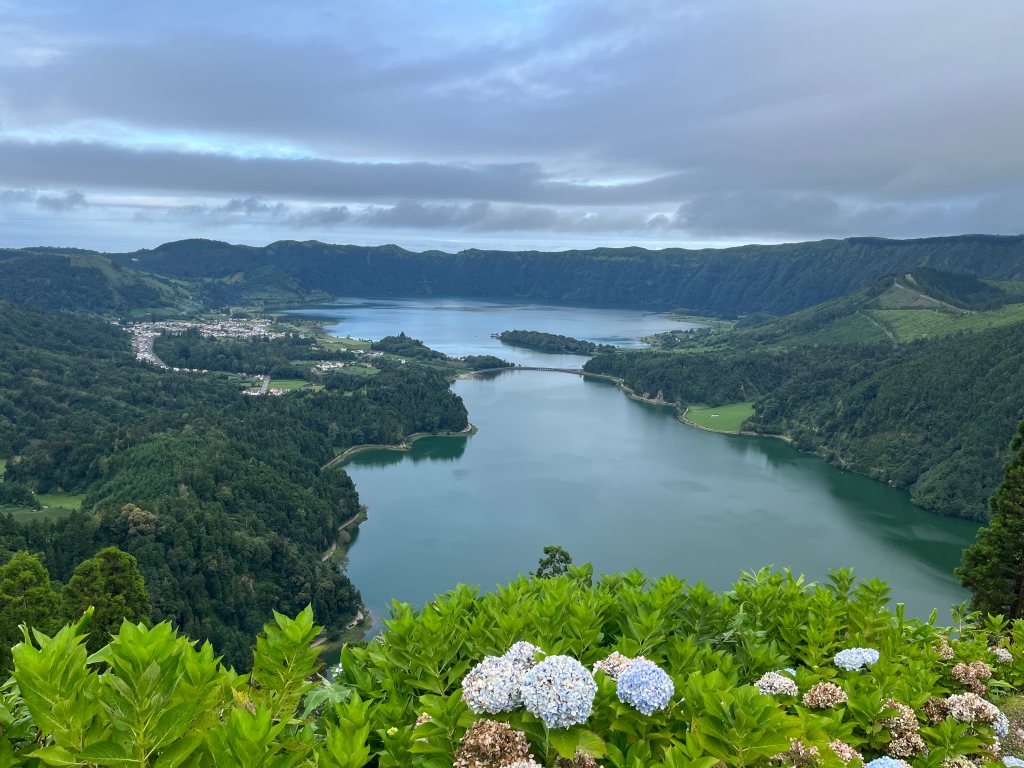
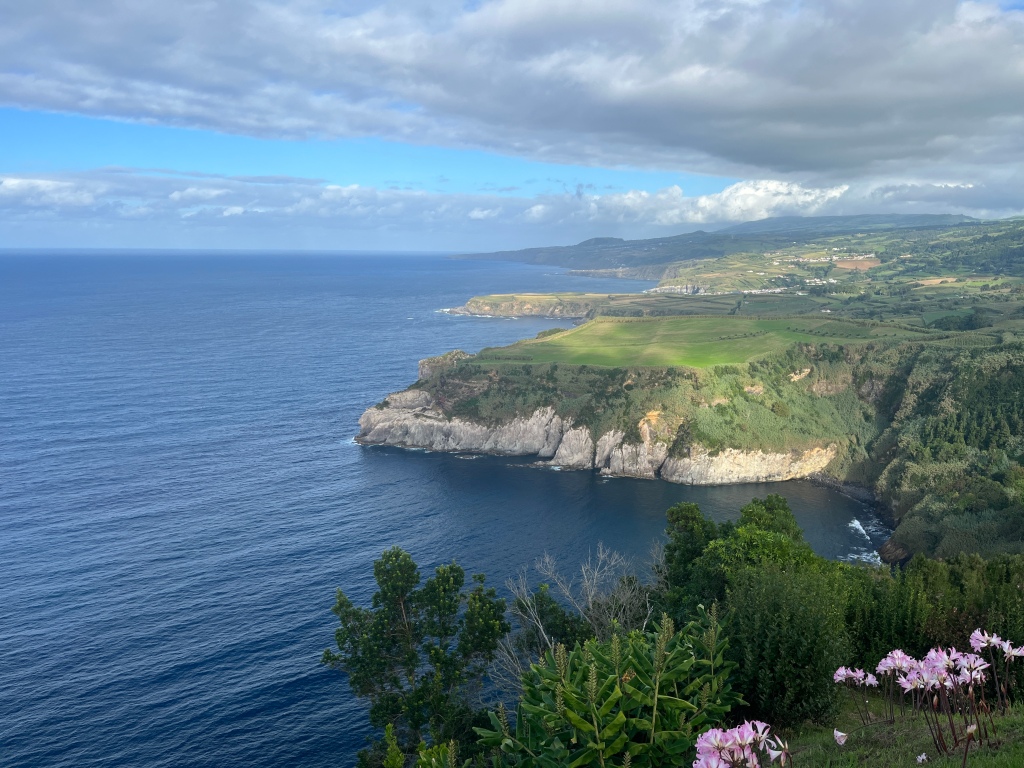
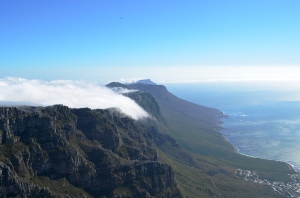
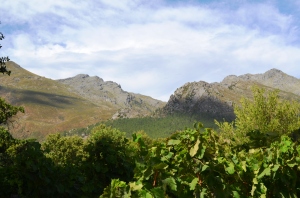
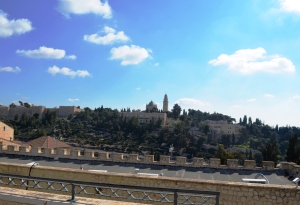


![Reblog this post [with Zemanta]](https://i0.wp.com/img.zemanta.com/reblog_e.png)